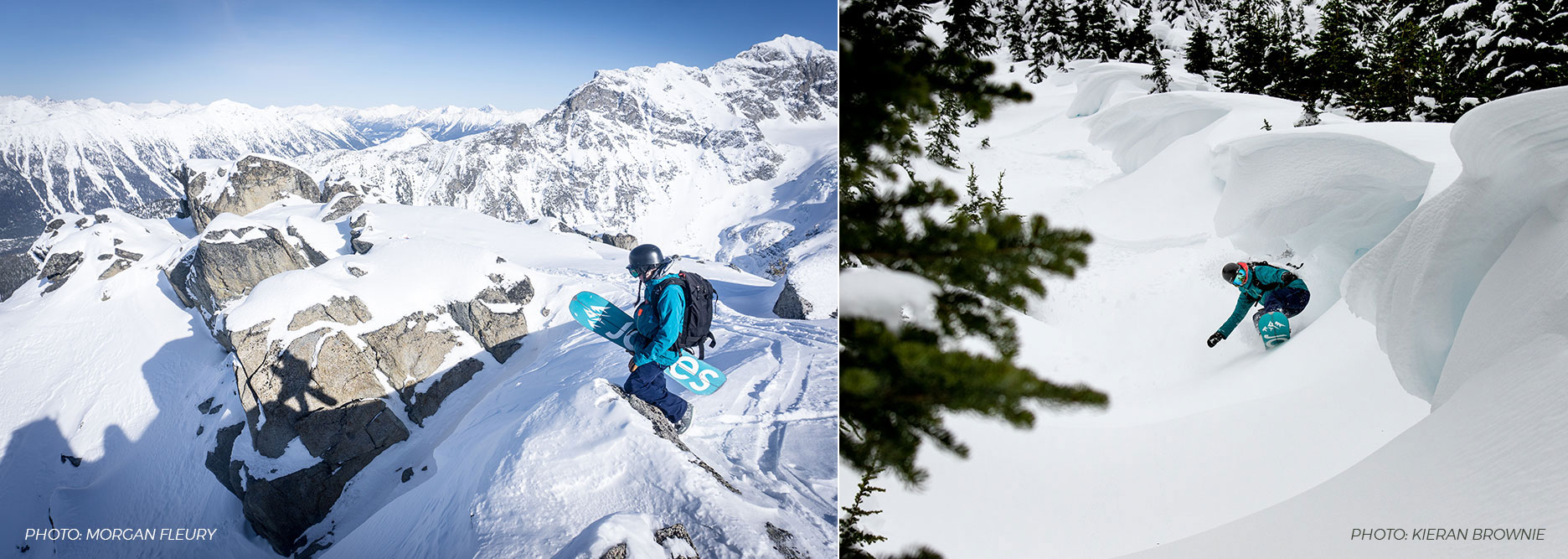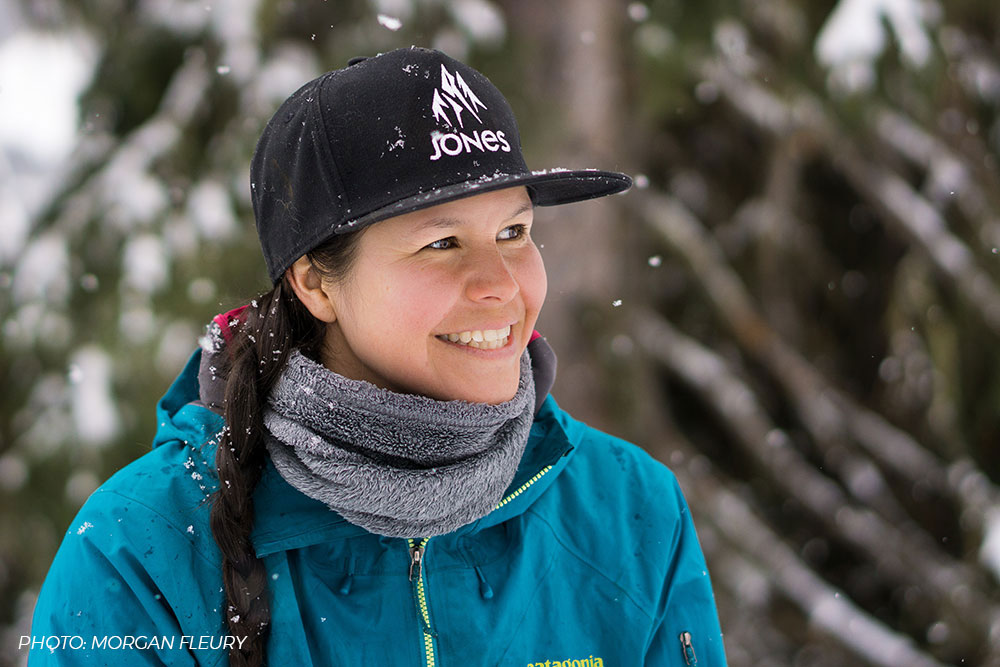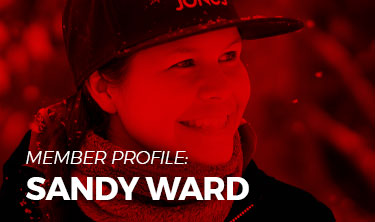Sandy Ward is a BC snowboard instructor and CASI Evaluator. Recently, Sandy has been working in partnership with Patagonia, and alongside friends Marie France Roy, Myia Antone and Leah Evans to write an article called “The History Beneath Our Feet” This article is a discussion between two indigenous women from different nations, and talks about culture, lands and what it’s like to get out on the land from an indigenous perspective. Watch for this article to come out in early winter.
Where are you from?
I am from the Lil’wat Nation tucked into the coast mountains of BC. Our traditional territory spans from the Black Tusk all the way to Duffey Lake, from Lillooet Glacier and into the Stein Valley.
How did you get into snowboarding?
I started snowboarding when I was 15 in Whistler. I had always looked at the snowboard instructors and thought they were so cool. So I went out and bought a snowboard with my first paycheque. I learned from a friend who took me to the top of Whistler and told me to just watch her and try… That didn’t end well, I broke my wrist on the first day. But, I was hooked. I joined the First Nations Snowboard Team when I was 18 and my snowboard career took off from there.
 When did you take your CASI Level 1? And why?
When did you take your CASI Level 1? And why?I took the CASI 1 so that I could teach the next generation of Indigenous youth. FNST provided me this opportunity and I am so thankful for everything that they did for me in my early years.
When did you start teaching?
I started teaching pretty much as soon as I got the Level 1. I walked into the Whistler-Blackcomb job fair and applied for the kids program. They said no, so I went to the adults program and was hired on the spot. I still work there 17 years later.
How has CASI helped you?
CASI has given me the opportunity to do the thing I love doing for a living. I’m not sure what I would have been if I wasn’t an instructor.
What are the things you are currently doing that you want to tell us about?
I am the lead for Indigenous Women Outdoors, Backcountry Mentorship Program. We are a non-profit organization that is breaking down the barriers for Indigenous women to get involved in the outdoors. By offering free or low-cost access to gear and knowledge in these often high cost sports, we hope to see more Indigenous women in leadership roles within the outdoors industry.
My work with Indigenous Life Sport Academy (formerly FNST) and IWO have lead me to numerous opportunities in the outdoor industry. I am very proud to be a part of Fabric, a 5 part documentary series highlighting women in board sports that use there sport as a vehicle to create change in the industry. I am in the “Heritage” episode alongside Spencer O’Brien, where we dive into what it is to be an Indigenous woman in the mountains. Watch for the Whistler premier dates in early December.
 Why do you snowboard?
Why do you snowboard?I’ve always loved snowboarding because it gets me outside. As I started learning about my Indigenous heritage, I started getting into the backcountry. I started to learn the stories and place names of my traditional territory which gave me a better connection to the lands and to my ancestors. I snowboard for fitness, for mental health, for fresh air and who DOESN’T like being at the top of a mountain? Weather it’s blue bird or a storm, snowboarding is always fun.
Do you have any links you’d like to share?
